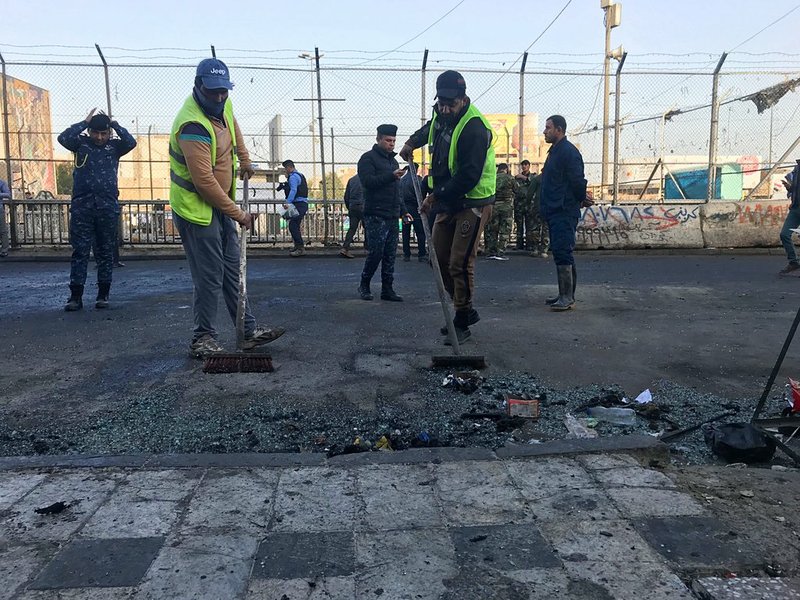BAGHDAD — Twin suicide bombings rocked Baghdad on Monday, killing 38 people in the deadliest attack since Iraq declared victory over the Islamic State group last month and raising fears ahead of national elections planned for May.
The bombers targeted the bustling Tayran Square, in the heart of the capital, setting off their explosive vests among laborers and street vendors during the morning rush hour. More than 100 people were wounded, according to police and hospital officials, who spoke on condition of anonymity because they were not authorized to talk to the media.
No one has claimed the attacks, but they bore the hallmarks of the Islamic State.
Iraqi forces have driven the Islamic State from all the territory the extremists once held, but the militant group has proven resilient in the past. Prime Minister Haider al-Abadi hopes to extend the country's newfound sense of pride and unity in order to lead a diverse coalition to power in May.
Ambulances rushed to the scene as security forces sealed off the area with yellow tape. Slippers could be seen scattered about on the blood-stained pavement as cleaners hurried to clear the debris.
"It was a tremendous; I felt the ground shaking under my feet," said Munthir Falah, a secondhand clothes vendor whose chest and right leg were pierced by shrapnel. He said he fell to the ground and lost consciousness before later waking up in a hospital.
The father of three said government forces had failed to secure the capital. "They think that Daesh is done," he said, referring to the Islamic State by an Arabic acronym. "They don't bother themselves to exert efforts to secure Baghdad."
Einas Khalil, a Baghdad housewife, blamed the security breakdown on the country's feuding politicians, many of whom are connected to different state-sanctioned militias or branches of the security forces.
"We were expecting this because of the upcoming elections," she said. "Every four years we have to live through this suffering because of political differences and disagreements."
Iraqi Parliament Speaker Salim al-Jabouri denounced the attack as a "cowardly act against innocent people" and called on the government to take all necessary security measures. Al-Abadi met security officials in charge of Baghdad, ordering them to root out militant sleeper cells, according to a brief statement issued by his office.
Former Prime Minister Nouri al-Maliki, who stepped down after the Islamic State swept across northern and central Iraq in 2014, was widely accused of pursuing sectarian policies that alienated the country's Sunni minority during his eight years in power. Many of Iraq's Sunnis, fed up with al-Maliki's rule, initially welcomed the Islamic Stat as liberators from the Shiite-dominated government in Baghdad.
The government has proposed holding elections May 12, but parliament must approve the date. Sunni leaders have called for the vote to be delayed until the 3 million people still displaced from the fighting can return to their homes.
Victory over the Islamic Stat has come at a cost in Iraq, where entire neighborhoods in several cities and towns were completely destroyed in the fighting.
Read Tuesday's Arkansas Democrat-Gazette for full details.
